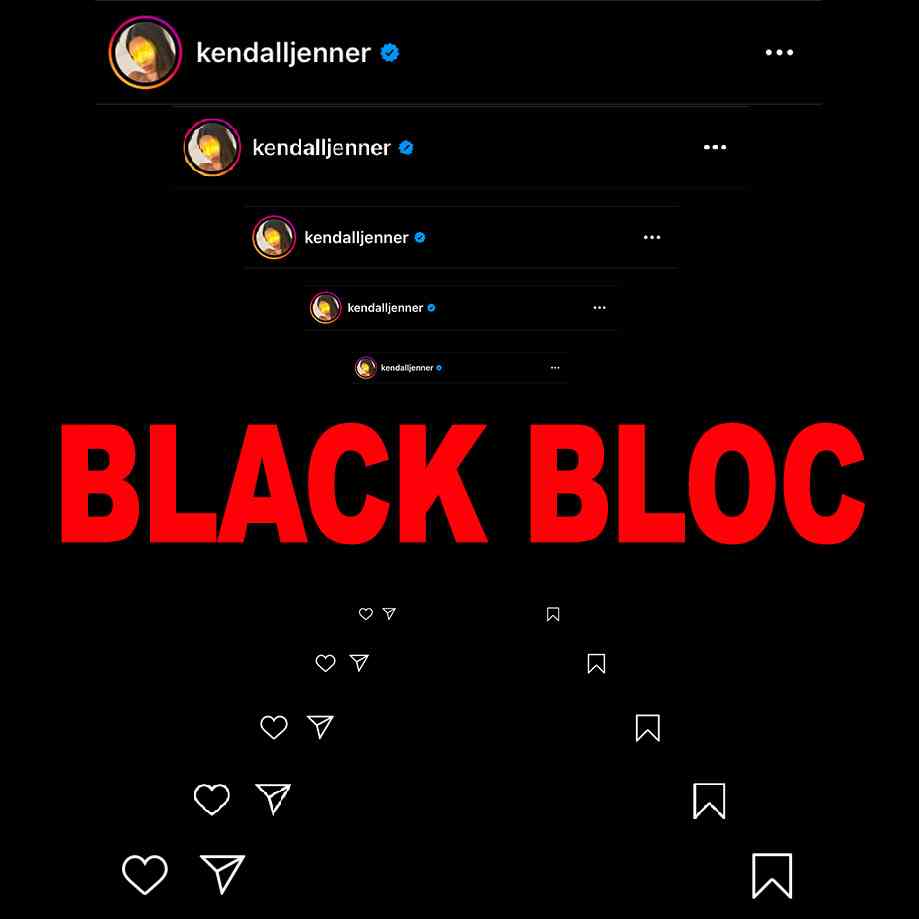A term for the “ghost audience” one imagines on social media who, at the most fraught moments of the online culture wars, can appear in one’s mind as infinite cops. “If I do or don’t tweet this, will thousands of digital strangers appreciate me or excoriate me?” Hakim Bey once said “kill the cop in your head,” and in the social media age there are infinity cops in your head watching—and warning—you with every keystroke.
LIL INTERNET: The compulsion to speak and trying to navigate the right things to say [e.g., posting a black square to demonstrate BLM solidarity]. I mean, it's just like, like, I'm sorry, what is that?
Carly Busta: I mean, Byung-Chul Han, that's what it is. That network doesn't keep us from speaking, it forces us to speak.
Daniel Keller: It’s the idea that silence is complicity. And that means that you have to post some cringe political slogans.
CB: But I think we’re putting blame in the wrong place when we just like tell people they're really stupid for posting. I mean, they are. But I really think that it's the structures of these networks that force us to communicate through them lest we seem like we're disappearing. And I think that is like one of the pains of this particular media moment. I mean, it used to be that you would turn on the news and then you know, you could go to the bar and have a drink and like, just nod in agreement with the person next to you that like, shit sucks and that was enough. Now you need to write a dissertation on your thoughts on being white and speaking on blackness—and publish that within 24 hours. I mean, it's horrible.
DK: I especially hate seeing Europeans do it. I saw so many, like, I don't know, kunsthalles from some small town, posting it. They probably literally have no black population. You don't need to stake a claim on American race dynamics. It's not for you. It’s not at stake there. This virtue signaling isn’t even like the way to describe it.
CB: I think there's a cynical read of this. The dog example [a german woman posting a cute pic of her dog in a black square] is a very good example of not getting it and just getting the need to signal something. I think probably the people at the kunsthalles recognizing some similar injustices—whether it's against migrants or something else—and wanting to participate in the general insurrectionary energy. I mean, I just don't want to get into the politics of shaming people for this shit they post because I think it's wasted energy.
LI: I think you're right, but I also think that it should be made very clear that like, no one should feel a compulsion to tweet on “the computer game [of social media],” it’s so stupid. Nobody should be punished for staying silent [on social media]. If they're seriously considering and thinking about this shit and using their energy to actually do something about it, like they should be commended. The worst thing you can do is speak out of compulsion and say things you don't even believe. You’re doing it to just fall in line [with] some amorphous force that's like a cop in your head, like 1000 cops in your head. It's a collective of imaginary people that are all criticizing you or telling you to say something, and you're worried about what they're going to say, if you do it wrong. I mean, the compulsion to speak coupled with the imaginary chorus of responses you might get, that's just a fucking crazy internal process that's constantly going on.
